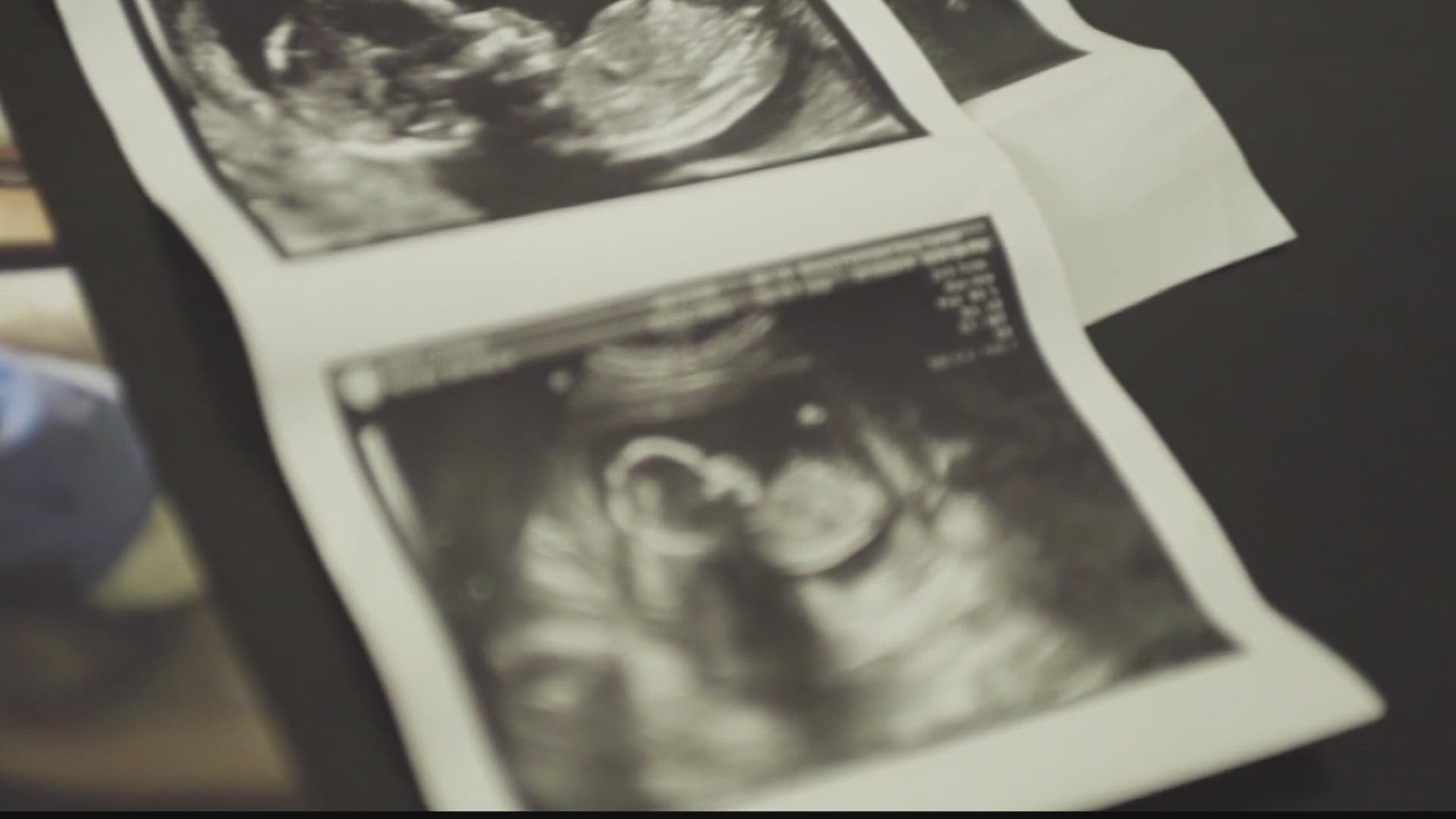ATLANTA — The Supreme Court's decision on Roe v. Wade is impacting people nationwide and is expected to make ripples in Georgia.
The United States has the worst maternal mortality rate among developed nations, and Georgia ranks as one of the worst states in the country.
In 2019, according to the Center for Reproductive Rights, Georgia had the worst maternal mortality ratio of any state in the country. Experts say that overturning Roe will disproportionately affect communities of color in Georgia, as for years, they have already faced many barriers to maternal health.
Naomi Desta-Bell is the Community Outreach Manager for the Feminist Women's Health Center. The non-profit offers an array of services to patients, including a full-service GYN and abortion clinic.
“There are folks who have access and privilege that are still going to be able to access abortions," she said. "Folks who already go through so much to come to our center, these are folks who are black or brown, who are immigrants, who are refugees, who are survivors of violence, those are the folks whose stories often don’t get seen, and who will have the most difficult time accessing the most important critical abortion care that they need."
Black women in Georgia are 3.3 times more likely to die from pregnancy-related complications than white women, and black babies are twice as likely to die than white babies, according to the Center for Reproductive Rights.
Aside from accessibility and transportation to get care, the non-profit organization, says there are also financial barriers, which they try to help with.
“There’s a really high immigrant and refugee population that we see, and not everyone is documented," Desta-Bell explained. "So then there’s another issue of health insurance, even when folks do have health insurance, there are a lot of services that are not covered.”
Cost is the reason the nearly 20% of black and Hispanic Georgians living in poverty say they haven't seen a doctor in at least a year.
Vanesa Sarazúa is the CEO and Founder of Hispanic Alliance Georgia.
"Prenatal services cost about $150 a month for our pregnant immigrant women who are not eligible for Medicaid," she explained. "That actually includes women who have less than a five-year residency in the state. We’re talking about $150 a month for services for just the prenatal care. Yes, they can pay in installments but for those living in poverty, that really means they have a debt at the end of their pregnancy."
Sarazúa says many women from communities of color, end up going straight to the hospital to give birth, without seeing specialists throughout the pregnancy, without checking on their baby's health, or their own, leading to more deaths.
RELATED: Atlanta city councilmember proposes plan to decriminalize abortion if Roe v. Wade overturned
Latinos also face a language barrier.
“They’re very disconnected from the services and the access to services is not all that sometimes we envision for those that are living in poverty," Sarazúa said.
Lack of education and medical mistrust has been a problem, too.
In 2019 in Georgia, 23% of black women and 49% of Hispanic women said they don’t have a health care provider.
“These folks that we see every day, these are the folks that will be impacted by this the most," Desta-Bell added.
To help with the language barrier Latinos face and to educate the community, Desta-Bell says her agency started their "Lifting Latino Voices Initiative," which she says is the only program in Georgia that offers comprehensive sexual education to Spanish-speaking community members.
"What we're working on in our clinic is ensuring that our community members know that we're still here, that our doors are still open, that folks are able to access this care now," she said. "But these folks that we see every day, whose stories we hear, these are the folks that that will be impacted by this the most I feel."
She says many people they serve are from Georgia but a lot of people drive from out-of-state to receive their services.
"There are people who travel extensively to be able to access abortion care that they're not able to access it in their home state," she said. "So then there's another added level of care that we seek to provide in terms of accessing hotels and meals and other voucher resources that we give to people."

